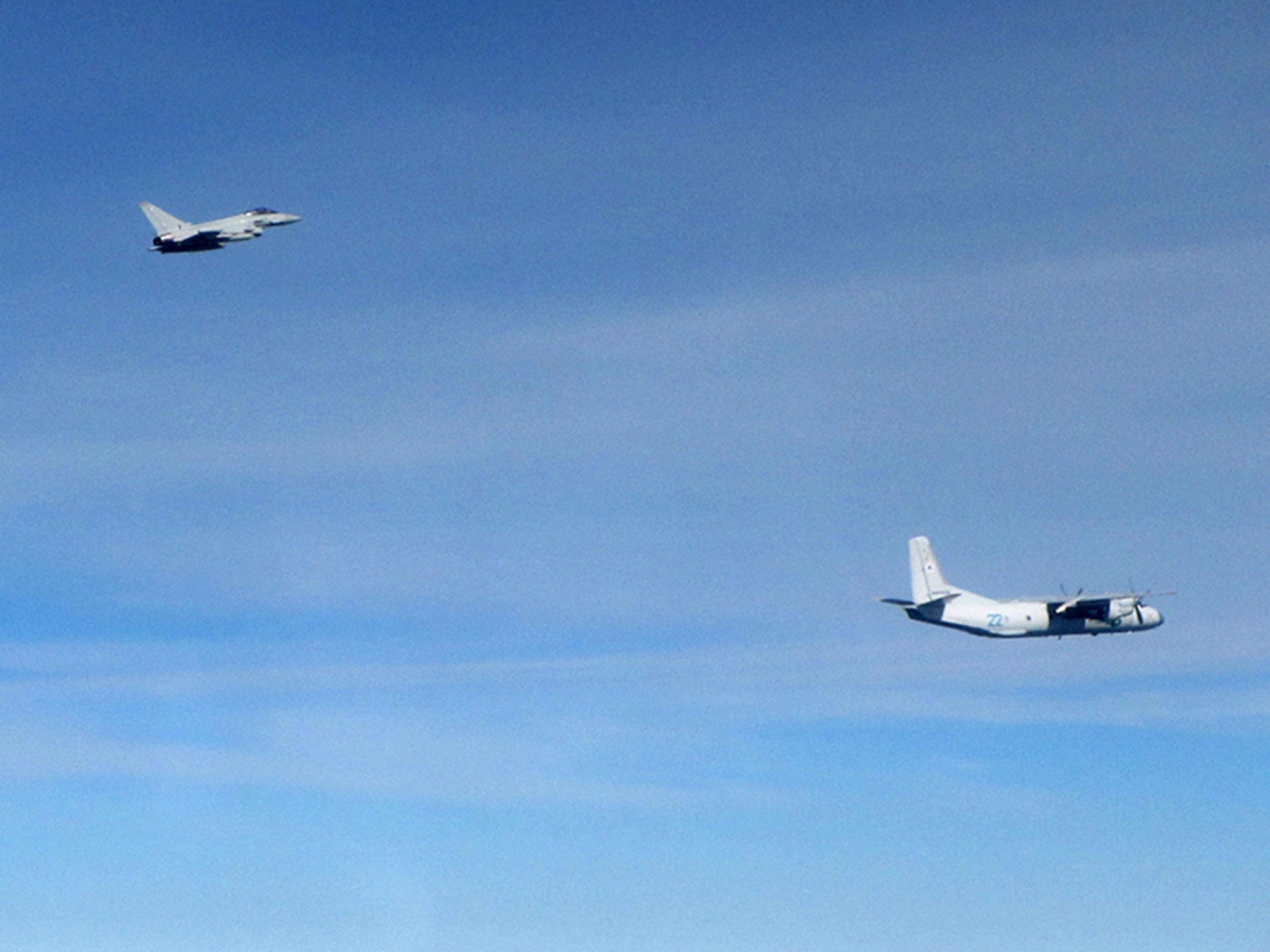RAF Typhoon jets scramble to intercept three Russian aircraft approaching Baltic airspace
Russian military transport aircraft appeared to be unresponsive as they travelled in the direction of the UK
Your support helps us to tell the story
From reproductive rights to climate change to Big Tech, The Independent is on the ground when the story is developing. Whether it's investigating the financials of Elon Musk's pro-Trump PAC or producing our latest documentary, 'The A Word', which shines a light on the American women fighting for reproductive rights, we know how important it is to parse out the facts from the messaging.
At such a critical moment in US history, we need reporters on the ground. Your donation allows us to keep sending journalists to speak to both sides of the story.
The Independent is trusted by Americans across the entire political spectrum. And unlike many other quality news outlets, we choose not to lock Americans out of our reporting and analysis with paywalls. We believe quality journalism should be available to everyone, paid for by those who can afford it.
Your support makes all the difference.RAF jets have been scrambled to intercept three Russian aircraft spotted approaching Baltic airspace in their latest intervention to keep Britain's skies secure.
The Typhoon fighter jets were launched from Amari air base in Estonia after the Russian military transport aircrafts did not transmit a recognised identification code and appeared to be unresponsive.
Defence Secretary Michael Fallon called it an "act of Russian aggression".
He said: "This is another example of just how important the UK's contribution to the Baltic Air Policing Mission is. We were able to instantly respond to this act of Russian aggression - demonstration of our commitment to Nato's collective defence."
The Baltic Air Policing Mission is a Nato scheme where members help each other police their air space - especially if a member country does not have the resources to do it themselves.
Four RAF jets were deployed to help with the mission last month and are scheduled to remain there until the end of August.
UK jets have been stationed alongside Portugese F16s from an airbase in Šiauliai, Lithuania.

One of the pilots involved in the mission said: "The scramble went exactly as planned, we launched our Typhoon aircraft quickly and then using our advanced sensors and mission systems, combined with support from our Battlespace Managers on the ground, carried out textbook intercepts of the three aircraft."
Wing Commander Gordon Melville said: "We have once more proven our ability to secure the skies in the vicinity of the Baltic States and have demonstrated the close link between the Royal Air Force, Estonian and Nato units that have planned and enabled this defensive response so successfully. We will continue to standby 24/7 to secure the Baltic skies."
The incident is the latest in a series of provocations by Moscow after months of tensions over the war in Syria.
Russia began a military campaign against the enemies of embattled Syrian President Bashar al-Assad which has reportedly killed hundreds of civilians.
It was already subject to economic sanctions by Western nations following its invasion of the Crimea in 2014.
In February 2015, Prime Minister David Cameron accused Russian President Vladimir Putin of "trying to make some sort of a point" after Bear bombers were intercepted off the Cornish coast.
It is unclear whether they were attempting to fly to UK airspace.

Join our commenting forum
Join thought-provoking conversations, follow other Independent readers and see their replies
Comments